|
For Ticket Information To The October 27th Tuskegee Gala
Email Willie Shellman at newengland.tai@gmail.com or Buy Your Tickets Online At: http://bit.ly/2dBwCwQ
Focus On Empowerment can be heard every Thursday at 1pm Eastern.
Log Onto: www.blogtalkradio.com/globalcarole Listen LIVE or Download Anytime At This Blog Post. Each broadcast can be replayed immediately following the show. ======================== They piloted great airplanes during the critical days of World War II despite the naysayers who declared that black men could not possibly fly. Men of honor and integrity. Men who stared American bred racism and foreign hatred down and fought on anyway. They were the grounds crew. The flight crew. The administrators and leaders of their soldiers. Those who flew the planes. And those who supported or led the squadrons on the ground. And the military and civilian champions following World War II who continue to keep their legacy alive. This is great American story of the Tuskegee Airmen, whose roots go back 75 years to their beginning in 1941. I am proud to be the daughter of a Tuskegee Airman who bravely served from 1941 to 1946. As we celebrate Global Diversity Awareness Month throughout October, we salute the 75th Anniversary of the Tuskegee Airmen with our special guest, Willie Shellman. The New England Chapter of the Tuskegee Airmen will celebrate this great story with a75th Anniversary Gala set for Thursday October 27th on the Boston Campus of the University of Massachusetts. -------------------------------------- History of the Tuskegee Airmen For More Information visit: www.tuskegeeairmen.org This is the official organization for the Tuskegee Airmen, Inc. The term, "Tuskegee Airmen," refers to the men and women, African-Americans and Caucasians, who were involved in the socalled "Tuskegee Experience", the Army Air Corps program to train African Americans to fly and maintain combat aircraft. The Tuskegee Airmen included pilots, radio operators, navigators, bombardiers, aircraft maintenance, support staff, instructors, and all the personnel who kept the planes in the air. Virtually all black military pilots during World War II received their primary flight training at Moton Field and then their basic and advanced flight training at Tuskegee Army Air Field (TAAF). Tuskegee Airmen, Inc. (TAI) is headquartered in Tuskegee, Alabama (about 35 miles east of Montgomery), where the training of black military pilots during World War II began. There are currently 57 active chapters of TAI located in major cities and military installations throughout the United States. ------------------------------------- October is Global Diversity Awareness Month, a celebratory time period I created more than 18 years ago to highlight the importance of expanding your reach beyond your own race, culture or ethnicity. Click Here To Learn More About Global Diversity Awareness Month
0 Comments
Carole's Father Tuskegee Airman Wilson Copeland Honored at The March 3, 2016 Black History Breakfast3/1/2016 His stories and expansive capacity to understand world issues were unrivaled. From an impoverished background to graduating from college and survived the bitterness of American racism and discrimination, my father, the late Wilson A. Copeland, was indeed a unique individual. I yearn to travel and understand the world just like him. I navigate the world as an entrepreneur because of him. Our relationship was sometimes topsy turvy, but he was my dad and I loved him. He was a Tuskegee Airman, and we will honor him at Thursday's Black History Breakfast. =================================== The Late Wilson Albert Copeland was born in 1917 in Clinton, South Carolina to Carrie and Bradley Copeland. When his parents divorced he moved to Bel Air, Maryland with his mother and older brother, Eugene. (His mother eventually remarried John Brown in Bel Air, Maryland. Brown was a World War I Veteran.)
Mr. Copeland was enrolled in the then segregated Bel Air/Harford County school system, a system which at that time only provided educational opportunities for Blacks through the ninth grade as further education and training were discouraged beyond that point for people of color. Because of those circumstances, his brother sought employment, soon married his sweetheart Marguerite, and had one son, Charles (now all deceased). Encouraged by his mother and driven from within, he rented a room from the Marshall family who lived in Baltimore directly across the street from Douglass High School, some thirty miles from Bel Air. Working in Baltimore during the week and hitchhiking and working back in Bel Air on the weekends, he graduated from Douglass High School in 1937 and won a scholarship to Virginia State College for Negroes. He went on to obtain a bachelor’s degree in business administration from the college in 1941. After a brief period working in Maryland, Wilson Copeland joined the military as America entered World War II. Mr. Copeland trained at Tuskegee Army Air Field in Tuskegee, Alabama as a Second Lieutenant in the United States Army Air Corps during the war. He would later be known as one of the Tuskegee Airmen. (An ulcer prevented him from completing pilot school, although he continued on in a leadership role in the US Army Air Corps.) A bitter remembrance of racism for him was traveling with other Black soldiers on a military train in the South. Arrangements had been made with restaurants in the region to feed the soldiers. On one occasion the Black soldiers were brought cold box lunches and were forced to eat their meals onboard the trains. In another car, the German prisoners of war were escorted off the train and were allowed to eat hot meals inside of the restaurants along the route. Later he served as the Adjutant Officer assigned to the B25 Bombers at Selfridge Air Force Base in Michigan. Following his honorable discharge, he found employment and moved to Detroit, renting a room in a boarding home in the Black section of the city. The owner of the building, Rev. James A. Charleston, lived next door with his wife, Nora Dean and school teacher-daughter Gwendolyn. One thing led to another when Wilson and Gwendolyn met. They married on December 22, 1946. From this union two children are born, Wilson A Copeland II in 1949 and Carole Dean Copeland in 1953. (Carole was named after both grandmothers—changing Carrie to Carole and using “Dean” from Nora Dean. Instead of a “Junior,” the son became Wilson A. Copeland II.) Active as a Trustee at St. Paul AME Church (pastored by his father in law, Rev. Charleston), Mr. Copeland was engaged in successful business ventures in Detroit including co-ownership in Blue Flame Oil Company. Despite that success, he yearned to build a business in one of the newly independent and developing nations on the African continent. His widespread travels throughout Africa led to marginal and less than successful business projects in Ghana (West Africa) in 1959, shorty after its independence. One of his American business partners was Rev. Albert Cleage, father of the celebrated writer Pearl Cleage. Sadly his marriage failed and he divorced in the early 1960s. Although he married briefly years later, he would never lose affection for his beloved Gwendolyn. He was eventually recruited by the United States Department of State and spent twenty years working for various posts at the American Embassies in Ghana, Nigeria and Liberia. His last eight years of government service were in Nairobi, Kenya. Mr. Copeland retired in 1979, lived briefly in Pennsylvania near his daughter and her family before relocation to Los Angeles. He enjoyed telling stories of his numerous adventures, which included safaris, participating in several historical events, including the first meeting of the Organization of African Unity in Ethiopia in 1963. Mr. Copeland also rescued an American diplomatic pouch and was stranded in Accra, Ghana in the middle of a military coup. At great risk to himself, Mr. Copeland was able to get to the airport, extract the courier and the pouch, and in spite of having to get by several army road blocks and being shot at and chased by rebels, was able to safely return the courier and the pouch to the American Embassy. For this act, he was awarded a State Department Commendation and was made an honorary member of the Embassy Marine Corp Guard. Travel was second nature to Mr. Copeland and the world was his living room. Even after being diagnosed with lung cancer in the late 1980s, he continued to live life to the fullest, frequently driving cross country from California to the East Coast to visit friends and family. He enjoyed his 50th college reunion in Petersburg, Virginia in 1991 and then traveled to Detroit, where he visited with his son and his family and attended the Tuskegee Airmen Convention. His travels took him to Costa Rica in October 1991, before returning to his home in Los Angeles. Wilson A. Copeland departed this life on October 31, 1991, with his spirit, pride and dignity intact. He was buried in the family plot at Elmwood Cemetery in Detroit. Years later in 1998 his first wife, Gwendolyn would be buried next to him. Wilson Copeland was a member of Kappa Alpha Psi Fraternity, the Masons and the Tuskegee Airmen, Inc. The Black History Month Breakfast will be held on Thursday March 3, 2016 at the Boston Colonnade Hotel from 8:30 am to 11:00 am. From Left to Right: Enoch Woodhouse, Willie Shellman, Harvey Sanford, The Late William Vickers, Delbrook Binns and Dr. Harold May Photographer: Dennis Stein/Metrowest Daily News ===================================================================================== Our March 3, 2016 Black History Breakfast will pay tribute to the six LIVING New England area Tuskegee Airmen and the Tuskegee Airman who just passed away earlier in February. Below are their biographical profiles and the history of the New England chapter, headed by Willie Shellman. All will be honored at the Breakfast. Special Thanks to Willie Shellman for providing this article about these extraordinary men. -Carole Copeland Thomas A Short History of the Tuskegee Airmen and Biography Notes of Massachusetts Tuskegee Airmen The New England Chapter is based in Massachusetts and is one of approximately 50 chapters of Tuskegee Airmen Incorporated. Tuskegee Airmen Incorporated (TAI) is a national civic organization that was formed in 1973. The goals of TAI are to:
On January 16, 1941 the War Department announced the formation of the 99th Pursuit Squadron, a black flying unit, to be trained at Tuskegee, Alabama, the home of the Tuskegee Institute. Thus the "Lonely Eagles," as the black pilots called themselves, became reality. The first class, which was designated 42-C, began on July 19, 1941. Five students completed the training and received their wings on March 7, 1942 The 99th was later joined other Tuskegee squadrons to form the 332nd Fighter Group. The 332nd flew P-40, P-39, P-47, and P-51 aircraft in combat throughout the Mediterranean and European Theaters and became a respected and decorated group of fighter pilots. The group was known as the "Red Tails" for their aircraft paint scheme. The bulk of the Black flyers were in the 332nd Fighter Group. Veterans of the 332nd Fighter group and newly trained pilots were used to form the 477th Bombardment Group. The Bombardment squadrons were equipped with B-26 aircraft and later with B-25s. The war ended before the 477th Bombardment Group was deployed overseas. From the inception of the 99th through the period that signaled the ending of World War II (1946), the following number of black combat flyers completed their training:
Class 46-C, which graduated on June 29, 1946, was the last pilot class to finish at TAAF. In order to support the black flyers ten times as many administrative and ground support personnel were trained. In order to keep the pilots flying the Army Air Corps trained and deployed Black servicemen in all the required support functions (mechanics, ground crew, nurses, etc.). The “Tuskegee Experiment” succeeded beyond the expectations of even those who proposed the program. The excellent record of the 332nd Fighter Group in combat led to a review of the War Department's racial policies and a presidential order in 1947 to desegregate the United States Armed Forces. There were 14 pilots and numerous support personnel from Massachusetts. Today the following Tuskegee Airmen are living in Massachusetts. *Raymond Baker entered the U.S. Army in 1944. He went to Biloxi MS for basic training and then was assigned to Tuskegee Army Airfield. After several months Raymond began pilot training as a member of Class 45I. The war ended before his completion of the flying program. Mr. Baker was discharged in July 5, 1946 and returned to Brockton, MA. *Jack Bryant grew up in Chicago, IL and followed his brother into pilot training in the Army Air Corp in 1945. The pilot training program at Tuskegee Army Air Field was discontinued before Jack’s class completed training and Jack was discharged in 1946. Jack entered the University of Michigan and graduated with a degree in Civil Engineering. In 1961 Jack moved to Boston and started Bryant Engineering, a civil engineering firm specializing in major infrastructure projects. *George W. Giddings from Yonkers, N.Y attended Fisk University. He entered Aviation Cadet training in 1942 and was assigned to Class 43H at Tuskegee Army Air Field. Served until 1946. George was grounded due to an eye problem. He then attended Navigator training at Hondo AAF, Texas, Bombardier training at Roswell AAF, NM and Gunnery training at Yuma AAF, AZ and was discharged in 1946. *Harold May, MD. from Poughkeepsie NY, completed two years of undergraduate study at Harvard University before joining the Army Air Corp in 1945. The war ended before Harold could complete his pilot training and upon discharge he returned to Harvard University to complete his undergraduate studies and completed the medical degree program and Harvard Medical School. Dr. May began a missionary medical assignment in Haiti and stayed for eleven years. Upon his return to the United States Dr. May practiced medicine at Brigham and Women’s Hospital until retirement. Dr. May remains active as a founder and Board member of the humanitarian organization Family, a human service organization operating in Dorchester Massachusetts and Haiti. *Harvey F. Sanford graduated from the Boston Trade High School in Airplane Engine mechanics in 1944. In 1945 Harvey entered the U.S. Army Air Corps and was stationed at Tuskegee Army Air Field as an Air Inspector (Airplane and Engine) until his discharge in 1946. While at Tuskegee Harvey often traveled with the Base Commander while being responsible for the maintenance of the commander’s aircraft. And, from 1950 to 1952 during the Korean Conflict served in light Aviation Aircraft maintenance in the 272nd field Artillery group. Returning to Boston Harvey worked in aircraft research and development at Hanscom Air Force base until 1970. And, from 1970 until retirement in 1983 he worked as a FAA Airworthiness Inspector assigned to Logan Airport Boston, MA. *Enoch Woodhouse II, Esq. graduated from English High School in Boston, MA. Joined the U. S. Army Air Corps and completed the Officers Candidate School in 1946, at the age of 19. Served as Finance Officer for the 477th Bombardment Group at Lockbourne AF, OH. He was discharged from active duty in 1949 and joined the Air Force Reserves. While in the Air Force Reserves, Enoch attended Yale University and Boston University Law School. He was assigned to the Air Force JAG Office in 1956, while serving as a reservist at Hanscom AFB. Mr. Woodhouse retired from the Air Force Reserves as a Lt. Colonel in 1972. Attorney Woodhouse practiced law in Boston and served as a Diplomatic Courier for the U.S. State Department in Europe, Africa and South America. He is former Assistant Corporation Counsel for the City of Boston and served as Public Member for Promotion of the State Department of Officers. Sadly, Mr. William Vickers passed away on February 2, 2016. Here is his biographical profile. *William Vickers graduated from Boston Trade High School and entered the U. S. Army in 1944 qualifying for assignment in Pilot Training program. Mr. Vickers took basic training at Kessler Field in Biloxi, MS. Mr. Vickers was stationed in Sebring Florida as a member of the B-17 Ground Crew. Later William was sent to Bombay India and stationed in the Assam Valley in India as part of the Air Transport Command. Upon discharge in 1946, Mr. Vickers joined the National Guard and was recalled to active duty in 1950 and stationed at Camp McCoy in Wisconsin and later sent to Helicopter school before his release from active duty in 1952. Mr. Vickers continued to serve and retired from the National Guard after 22 years of service. **************** 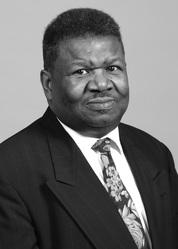 Willie Shellman joined Tuskegee Airmen, Inc. as a civilian in 1985 and currently serves as President of the New England Chapter. He graduated from high school in Chicago, IL. and later graduated from Tuskegee University with a degree in Electrical Engineering. Willie was employed as an Auto Pilot Design Engineer on C-5 and F-14 aircrafts and as an Avionics Design Engineer in missile systems. Mr. Shellman majored in Business Administration at Northeastern University and was employed as a Sales Operations manager in the computer and internet industries. Mr. Shellman most recent employment was as the Executive Director of the YMCA Achievers Programs at the YMCA of Greater Boston. Mr. Shellman is currently retired. Having lived in several cities around the United States, Willie and his wife Maxine, along with their daughter and son have resided in Sudbury Massachusetts for the past thirty-five years. Acknowledgements: Many dedicated Massachusetts Tuskegee Airmen have preceded us in their Homecoming. We dearly remember George S. Lima, Jr. (Rhode Island), William Bennett, Vernon Burke, Charles Diggs, James Fischer, Lloyd Godfrey, Daniel Grant, Stephen Hargrove, Milton Hopkins, Fuzzy Hector, Luther McIlwain, James McLaurin, Allen Monroe, Daniel Moore, Robert Newton Sr., John Roach, Frank Roberts, Thomas Ross, Willis Saunders, Herman Wells and many others.
Click Below And Listen To The Radio Broadcast Anytime
Focus On Empowerment can be heard every Thursday at 1pm Eastern.
Log Onto: www.blogtalkradio.com/globalcarole Listen LIVE or Download Anytime At This Blog Post. Each broadcast can be replayed immediately following the show. ======================== The military assumption of the 1930s was that Black men didn’t have the mental or physical capacity to fly airplanes. White wisdom, widespread racism and the steady hand of Jim Crow reinforced that assumption. So when America entered World War II in 1941, where would they turn to get the military and aviation manpower to fight off the Japanese, Germans, Italians and Austrians while protecting the American home front? The answer rested in the very Black men who were maligned and mistreated and assumed unfit for aviation duty. Their ranks would grow and their dignity and courage prevailed through unending discrimination and mistrust. They started out as members of the US Army Air Corps. They would later be known as the Tuskegee Airmen of World War II. Today as Black History Month comes to a close, we pay tribute to the brave men who flew the planes, repaired them, maintained them, conducted military missions overseas and supervised the soldiers…The Tuskegee Airmen. And we’ll pay special tribute to the men we’ll honor at the March 3rd Black History Breakfast, including my father the late, 2nd Lieutenant Wilson A. Copeland who served with his fellow Tuskegee Airmen with dignity, pride and excellence. Black History IS American History! =============================== History of the Tuskegee Airmen For More Information visit: www.tuskegeeairmen.org This is the official organization for the Tuskegee Airmen, Inc. The term, "Tuskegee Airmen," refers to the men and women, African-Americans and Caucasians, who were involved in the socalled "Tuskegee Experience", the Army Air Corps program to train African Americans to fly and maintain combat aircraft. The Tuskegee Airmen included pilots, radio operators, navigators, bombardiers, aircraft maintenance, support staff, instructors, and all the personnel who kept the planes in the air. Virtually all black military pilots during World War II received their primary flight training at Moton Field and then their basic and advanced flight training at Tuskegee Army Air Field (TAAF). Tuskegee Airmen, Inc. (TAI) is headquartered in Tuskegee, Alabama (about 35 miles east of Montgomery), where the training of black military pilots during World War II began. There are currently 57 active chapters of TAI located in major cities and military installations throughout the United States. ============================= The Black History Month Breakfast will be held on Thursday March 3, 2016 at the Boston Colonnade Hotel from 8:30 am to 11:00 am. |
* * * * * * * *Archives
August 2023
|
©2024 All Rights Reserved Carole Copeland Thomas • (508) 947-5755 • Carole@mssconnect.com
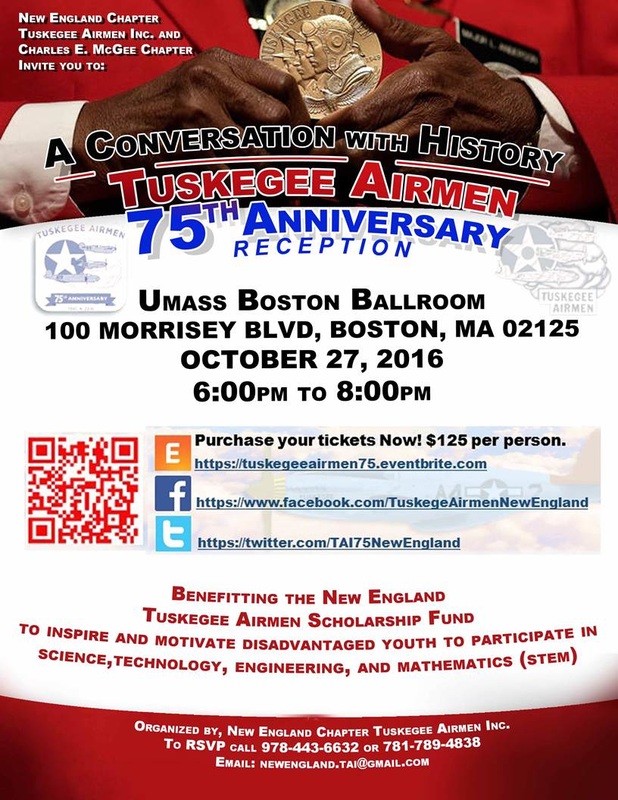
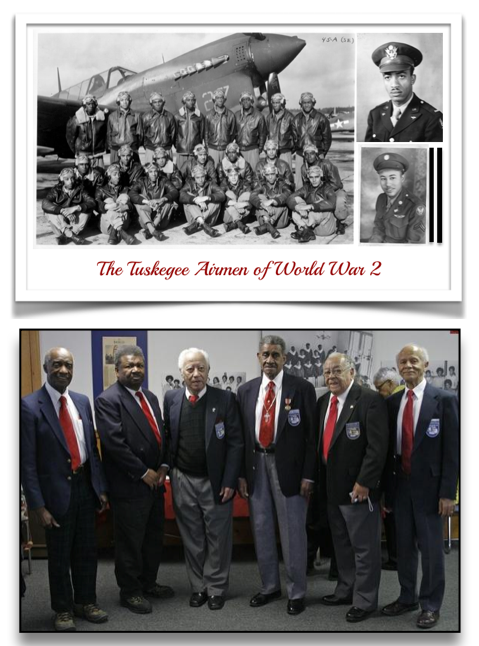
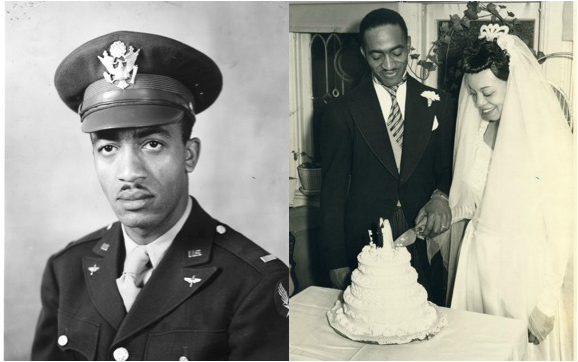
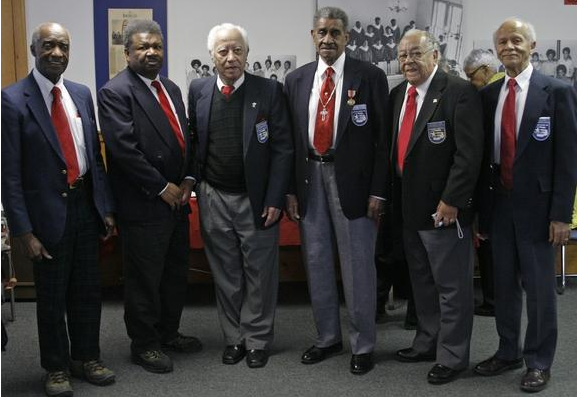
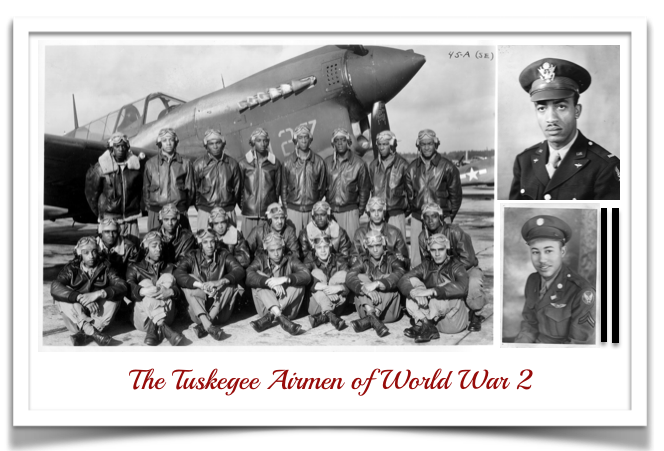

 RSS Feed
RSS Feed